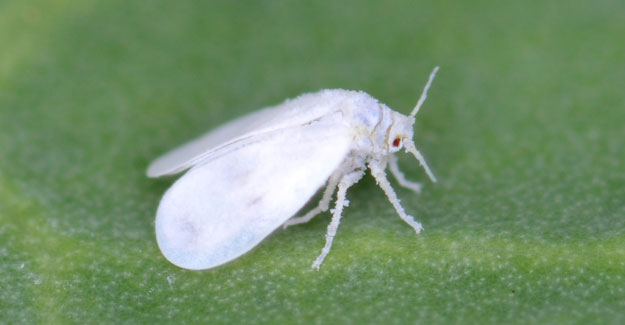
Punjab Cotton Under White Fly Attack
Punjab Agriculture Department inspected 751 fields across Punjab’s cotton belt and the white fly was reportedly found in every field, with the situation in Bathinda, Mansa, Muktsar, and to some extent Fazilka, posing a concern. In around 370 fields, the white fly presence had crossed the economic threshold level (ETL), which means that over 50% of the inspected crop is in danger. Punjab Agriculture Department Director Dr Gurvinder Singh said the department was educating farmers on controlling the attack. Lack of rain in Mansa and parts of Bathinda, Fazilka and Muktsar is said to be the cause behind this attack. The pink bollworm (PBW) that had damaged around 4 lakh acres out of 6.22 lakh acres of total cotton area last year was also noticed in 14 fields but it was a minor attack. The department has now recommended that the crops be sprayed. In Punjab, eight districts fall under the cotton belt, including Bathinda, Fazilka, Mansa, Mukatsar, Moga, Barnala, Sangrur and Faridkot, of which Bathinda, Fazilka, Mansa and Mukatsar are the main cotton districts. An area of 2.48 lakh hectares was covered under the cotton crop this year in Punjab, out of which 2.37 lakh hectares (95.55%) falls in these four districts, with 93,000 hectares in Fazilka and 67,000 hectares in Bathinda brought under the crop. In Mansa and Mukatsar Sahib, the cotton crop was sown in 45,000 hectares and 32,000 hectares, respectively. According to experts, the white fly presence was 50 to 60 per cent more than the ETL level per leaf. “If it remains within the ETL level, then it is controllable with the help of recommended sprays. When it crosses the ETL level, the expenditure on the sprays increases manifold and there is no guarantee whether it can be saved or not,” a cotton expert from the Punjab Agriculture Department said. In 2015, when white flies attacked the crop, for the next two years, Punjab Agricultural University (PAU) and Punjab Agriculture Department had appointed 500 scouts, all Class X pass, on a monthly salary of Rs 4,000 to supervise the crop and supervisors were appointed to monitor every 10 scouts. These supervisors were agriculture graduates and they were to keep a close watch on the crop from beginning till end. They also used to take farmers along to educate them about the attack and control measures. This transfer of know-how had prevented another attack for the last seven years. Last year, PWB had damaged a majority of the crop in Bathinda and Mansa and other districts too had suffered some losses.
Textile Excellence
If you wish to Subscribe to Textile Excellence Print Edition, kindly fill in the below form and we shall get back to you with details.












